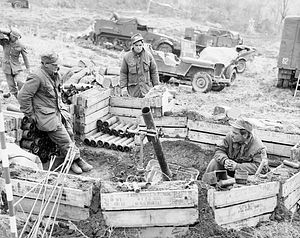Canadians are typically known for one thing: excessive kindness. While there may be some truth to the stereotype, the positive perception of Canadians today should not get in the way of unearthing and laying bare crimes committed by Canadians during the Korean War, argues Dr. John Price, professor of history at the University of Victoria.
On Friday, October 24, Price spoke at “The Afterlives of the Korean War,” an annual symposium of the Center for the Study of Korea (CSK) at the University of Toronto. On the panel, “On Unfinished Wars and the Politics of the Past,” Price delivered a speech titled “Burying the Past: Canadian War Crimes in Korea.” Culled from the research that went into his book Orienting Canada: Race, Empire and the Transpacific, the speech focused on the story of Shin Hyun-chan, a survivor of an unprovoked attack by a Canadian soldier in 1951 that left Shin wounded and his father dead. (The story, as written by Price, can be read at Japan Focus.)
Price learned of Shin’s grievance after being notified by his South Korean colleagues that Shin had filed a claim against the Canadian military for war crimes. After gaining access to the Canadian Press archives, Price was able to locate the perpetrator: John Murray Steeves, a Canadian solider with the 57th Independent Field Squadron of the Royal Canadian Engineers. While the motivations are unclear, testimonies indicate that Steeves was likely intoxicated and looking for trouble. Further archival evidence reveals that Steeves was eventually court martialed and sentenced to 15 years for manslaughter.
While it seems that justice was served, additional archival digging by Price discloses a troubling fact: Steeves was eventually freed after a judge advocate general found he had been wrongfully convicted. While this may very well be true (further information on the case has yet to be located), the number of cases similar to Shin’s is enough to make a strong argument that his tragic run-in with the Canadian military was not an isolated event. Many Canadian war crimes went basically unpunished. Even more troubling, the Canadian government (specifically the Ministry of Defense) appears unwilling to re-open these cases. For example, an official request by Price to look further into Shin’s case was refused.
Price’s research found that rape and murder by Canadian and other UN forces were not infrequent occurrences. The total number “remains unverified… [but] was substantial and exceeded anything seen during the fighting in Europe and WW II.” Price does not ignore the sacrifices made by Canadian soldiers and the “sense of humanity towards the Korean people” showed by some. But his point is not to extol the military; it is to render problematic the myth of the “kind Canadian,” a notion that Canada held itself to a higher moral standard than others.
On the contrary, Price argues that Canadians were as violent and racist as the United States and other Anglo-Saxon nations involved in the Korean War. He thus joins the efforts of other historians and academics researching the postwar racialized and gendered hierarchies of East-West (viz. Korea-West) relations.
Similar to what the Truth and Reconciliation Committee attempted to do in South Korea, Price contends, “it is time to expand and coordinate the research on war crimes beyond the US archives, [remembering] that the war effort, though led by US command, was a UN action, and that Canada, Britain, Australia, South Africa, New Zealand and others joined the UN forces.” While governments may stymie such efforts, it hasn’t stopped people like Price and other committed academics from speaking truth to power.

































